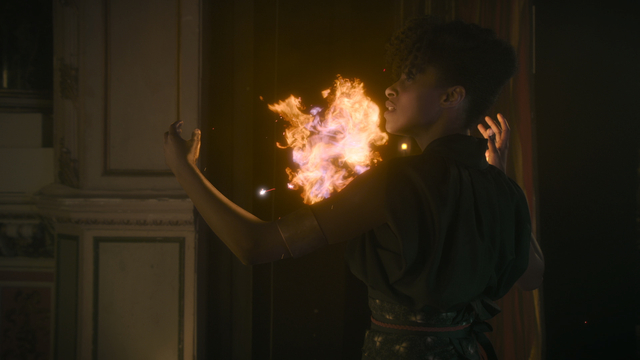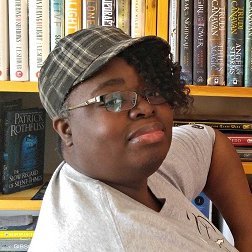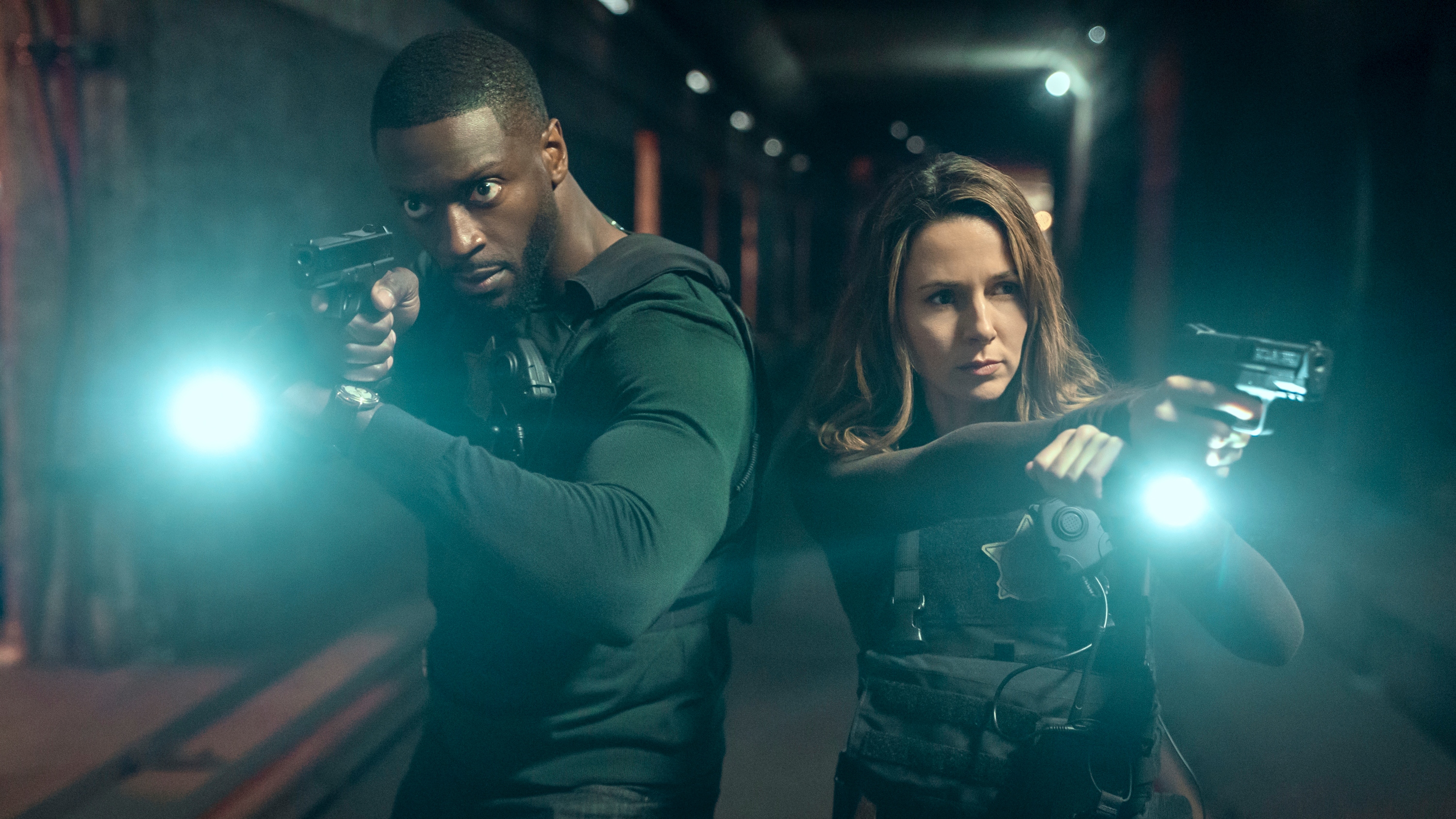What to Watch Verdict
It's a rough start but 'The Nevers' might just turn into something...maybe
Pros
- +
🔥Dynamic ensemble cast.
- +
🔥Witty and dark irony will help keep viewers engaged.
- +
🔥Fights, fire, and foes for days.
Cons
- -
🔥Exposition dumps can drag things down.
- -
🔥Fighting narratives struggle to push the story forward.
- -
🔥Joss Whedon's involvement is apparent.
This post contains spoilers for The Nevers.
One cloudy day in London, 1896 an incident that can only be considered supernatural, takes place in the skies over the city. In the aftermath, Londoners - mostly women — began displaying magical powers. Three years later, the country's sliding towards a tipping point as forces align themselves seemingly for or against the presence of the "touched" among the general populous.
Two women, a psychic widow Amalia True (Laura Donnelly) and an energy-working master inventor Penance Adair (Ann Skelly), run an orphanage as a safe haven for the "touched" and try to stay a step ahead of the potential danger to themselves and others like them. And thus HBO's new series The Nevers begins.
If the trailer is what convinced you to give the show a try, be assured you haven't seen the best these players have to offer when it comes to action. The adventure elements are so well done, it's enough to earn this talented ensemble a little time to shake out the kinks and let these characters settle into its story.
Although this lead duo feel familiar, as is expected of women created by Joss Whedon, Skelly and Donnelly carry the day by being refreshingly buoyant and giving grounded performances built on a clear understanding of what their characters need to feel three-dimensional from the outset. They're fun to watch and their energy's always engaging. The additional depth, added throughout episodes 2-4, happens in fits and starts but works wonders to even-out the show's many characters and their more complicated traits.
What starts as a straightforward magical action-adventure soon blends in plenty of mystery and danger lurking just out of frame to keep things unpredictable. The "touched" don't just need a safe haven in an increasingly hostile city and the two women intent on protecting as many people as they can aren't just worried about disappearances and powerful men who side-eye magical women.
Like in any good mystery, trust is undermine and loyalties get declared as the "touched" slowly come to understand what's at stake for them all. There's grit and intrigue to The Nevers sneaky peeks into people's motivations and emotional baggage from unexpected directions. Investing in this ensemble will be what keeps people watching. And with actors like Olivia Williams, Ben Chaplin, Nick Frost, Denis O'Hare, James Norton, Rochelle Neil, Zackary Momoh bring their respective roles in London to vivid life, viewers will find The Nevers riddled with people to root for (and against). Charismatic people is not something the show lacks.
The latest updates, reviews and unmissable series to watch and more!
Season one's really a slow reveal that Amalia True isn't like the other "touched" and what's she's knows may not be enough to save them. The show's building to some kind of big a supernatural reveal (and if there's a moment that practically screams hellmouth to you, no you're not hallucinating).
There are way too many questions dangling unanswered from episode to episode; as the series finds its rhythm — and figures out what to do with its large cast - the storytelling all begins to a twisted kind of sense.
What women are appalled by today they will accept tomorrow, and demand the day after that...
Lord Gilbert Massen
The influence of the series' creator, Joss Whedon, is inescapable in the pilot. There's an smoothness to the opening that does an excellent job of setting time and place. It establishes a tone, one of sadness and impending doom, as it reveals soon-to-be important players across the city. It's surprisingly subtle start but highly effective when juxtaposed against the whimsical note that signal a time jump and change of pace. The following sequence continues to brighten with clever one-liners, witty banter, and action as the Whedon signature dynamic duo of empowered women swiftly take center stage and kick this adventure up a notch. It's all done with a superb blend of period sensibilities and modern stylishness.
But with the good Whedon brings, comes the bad. There's a insane number of plot points and story arcs prematurely introduced. By the midway point, they're all fighting for pride of place in the story. For an opening, it's all far, far too noisy to allow a truly coherent narrative to emerge.
There's also abrupt scene cuts done simply to make room for overwrought exposition - the kind only a writer who doesn't trust his audience refuses to edit out. Rather than digging into the varied personalities, there's frequently shallow and circular dialogue mucking up the works. Pivotal character or storylines come by way of shoehorned salaciousness and/or violence. It's all a occasionally graceless and needlessly heavy-handed.
And sadly, Whedon can't resist the urge to leverage the Victorian setting to gather a cabal of staid overly-important men and have them pontificate about deviants, immigrants, and an attack on the empire "through its women" and the dangers they must defend against. This type of pontification becomes a bit of a dreary show staple when it comes to addressing issues of the day like, unionizing, the war effort, and of course the "feminine plague." As for situations that center sexuality, gender identity, race, or ethnicity, it's all a chaotic mix of shallow one off moments. Production design, costume, hair and make up are doing a lot of heavy lifting. Often too much. It's only due to the caliber of actors anchoring these roles such overly simplistic elements and obvious presentation avoids ringing false altogether.
Thankfully, this cast consistently delivers with the kind of flair and energy that makes the whole engaging despite the weakness in some of its parts.
What really saves The Nevers from being so overburdened its heroines and ensemble have no shot at overcoming the shortcomings of its creator is the fact Whedon only writes the first episode and only directs the first two. And it shows.
Each episode thereafter moves a little slower. Adding levels and depth to the action along with new players that help all that haphazardness evolve into a rich, increasingly character-driven, costume drama that plays out its themes in a suitably stylish fashion. By episode three, the twists and a few surprising turns set the stage for this narrative to coalesce into a picture of lines being drawn in a war taking place on multiple fronts. The "touched" will find not even their allies and benefactors are above suspicion.
The first four episodes are undoubtedly set-up (and a lot of clean up). It's clear who the London wanna-be power players are. But this storyline has way too many moving parts, many of them hampered by how they were initially presented. So it's also clear, that regardless of the rehab, it'll take more than a single season to get a handle on this messy roll out.
But, if The Nevers can avoid backsliding and continue settling into the voice and focus on the narrative that's started emerging; it might just have something. If viewers can get past the massive over-sharing and tonal unsteadiness that is the first episode and half, they may just find themselves seriously into this mix of madness, mayhem, and magic and willing to give it a chance.
Season 1 of The Nevers premieres on HBO beginning April 11 with the first of six episodes. The second have of the season (four episodes) have yet to be scheduled due to COVID-19.
- Everything you need to know about HBO Max
- The best movies on HBO and HBO Max
- The best HBO series
- HBO Max review
Ro is a Rotten Tomatoes approved film/tv critic, writer and host on several of the MTR Network's podcasts. She's a member of the San Diego Film Critics Society and the Online Association of Female Film Critics. She's a former culture columnist for San Diego CityBeat (may it rest in peace) with a serious addiction to genre fiction, horror and documentaries. You can find her sharing movie and book recs and random thoughts, on her podcast I Talk Sh!t and Read or in her newsletter, Shelf Envy.


